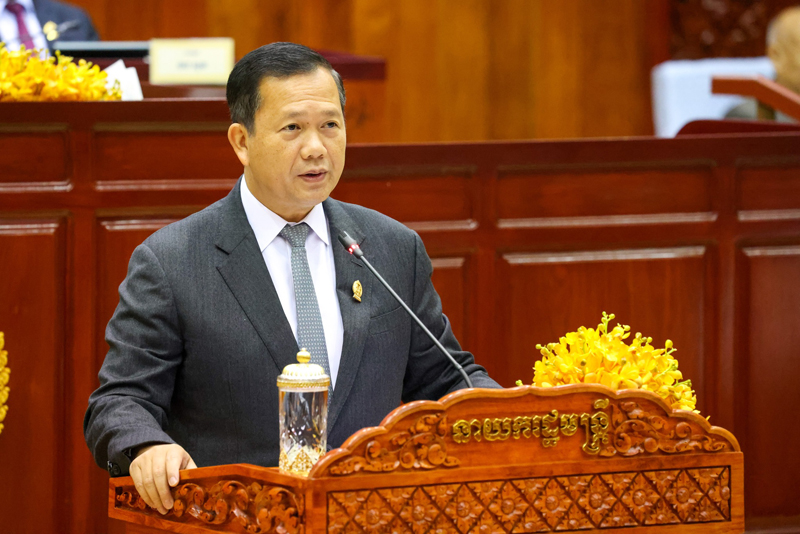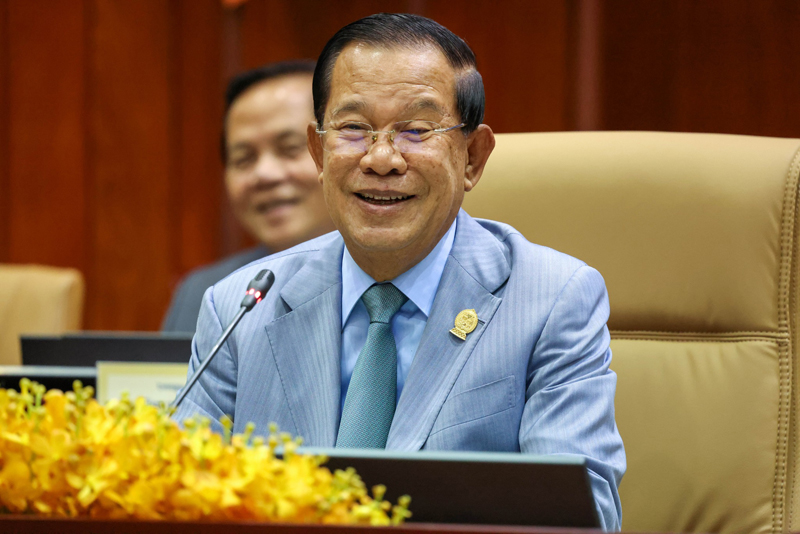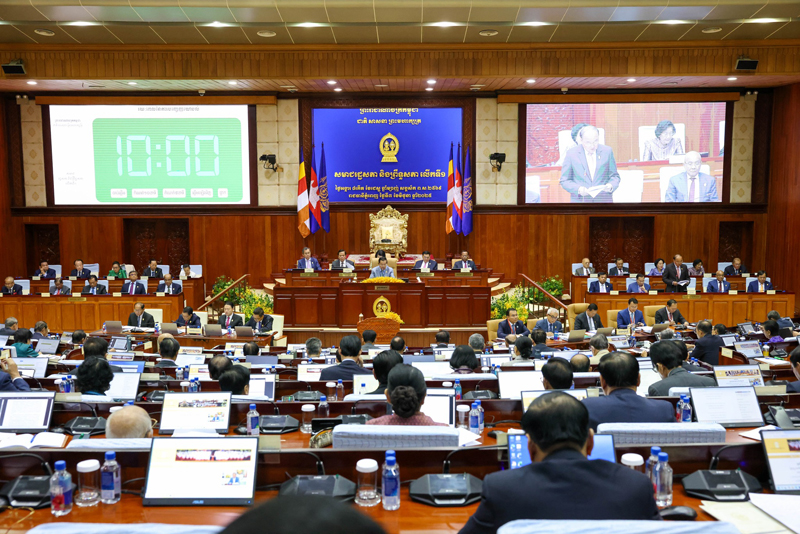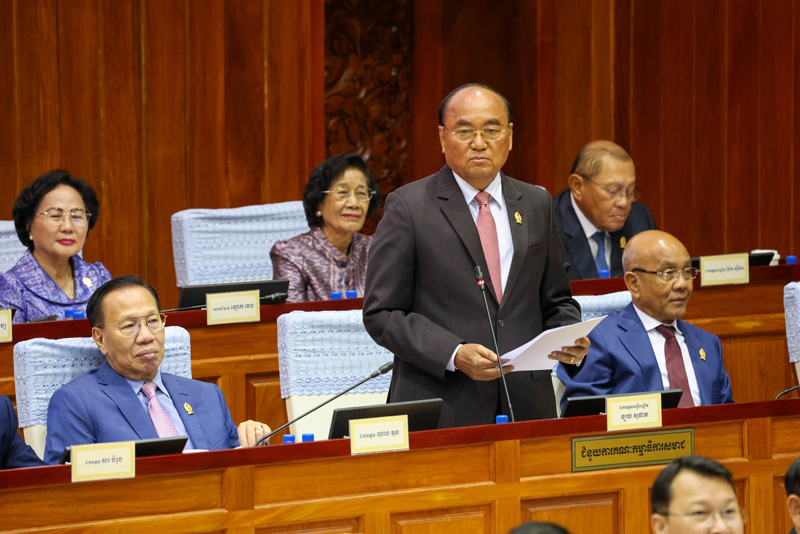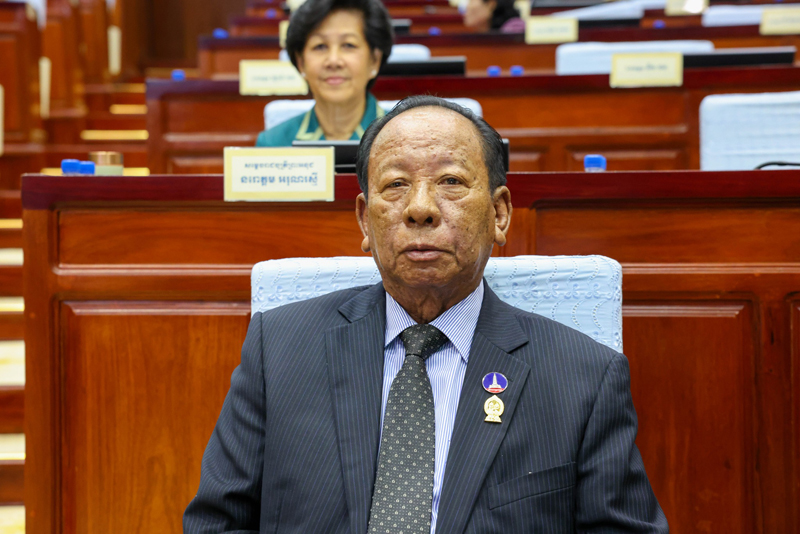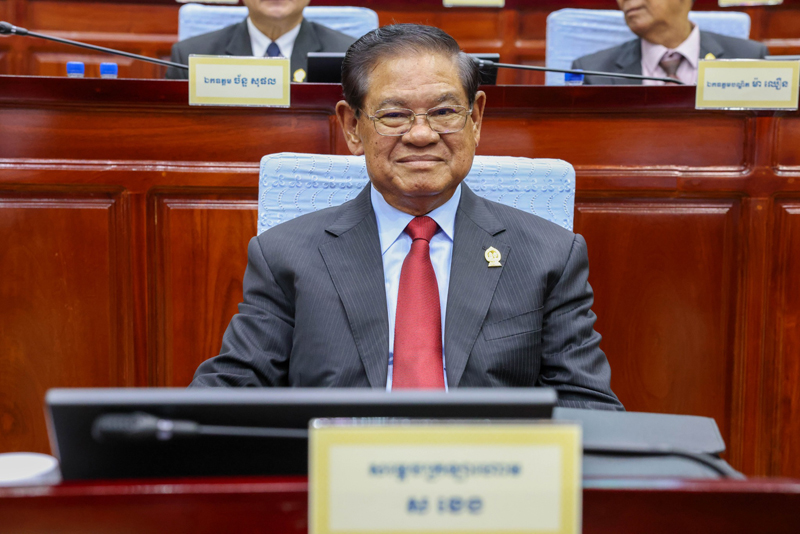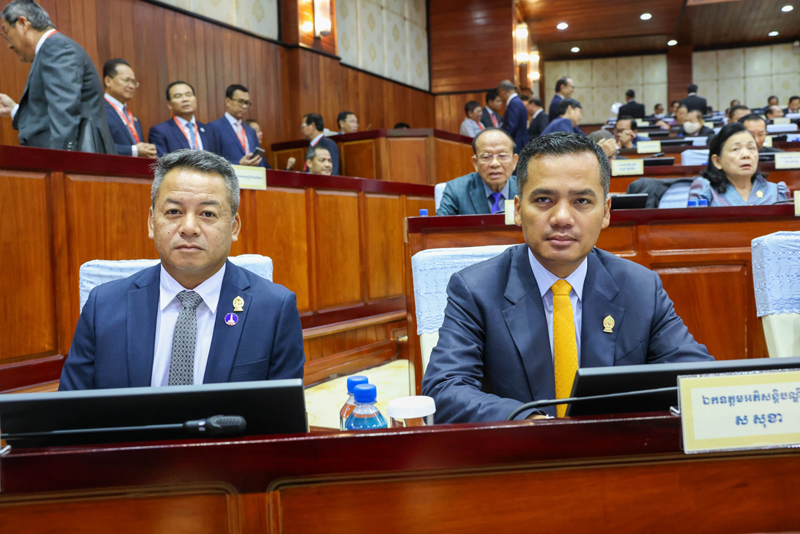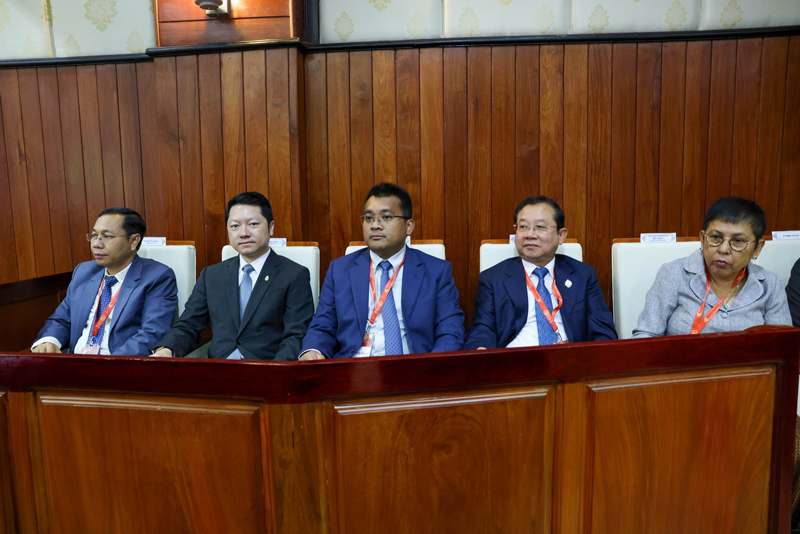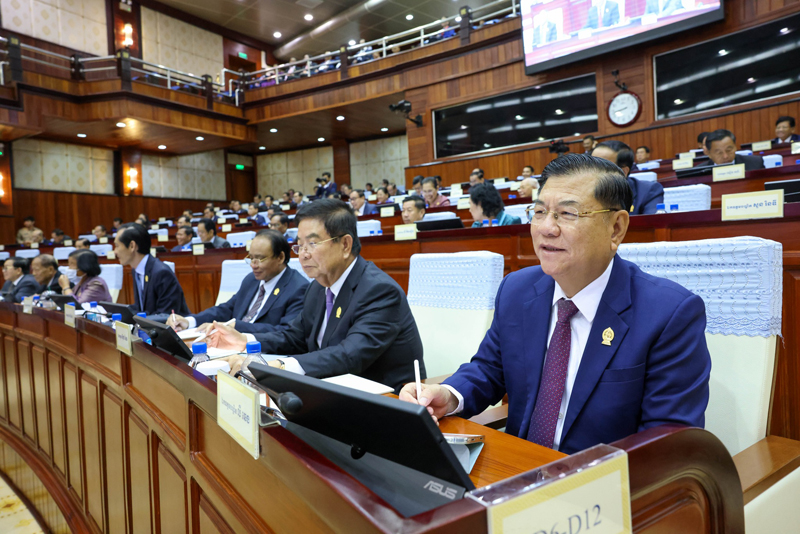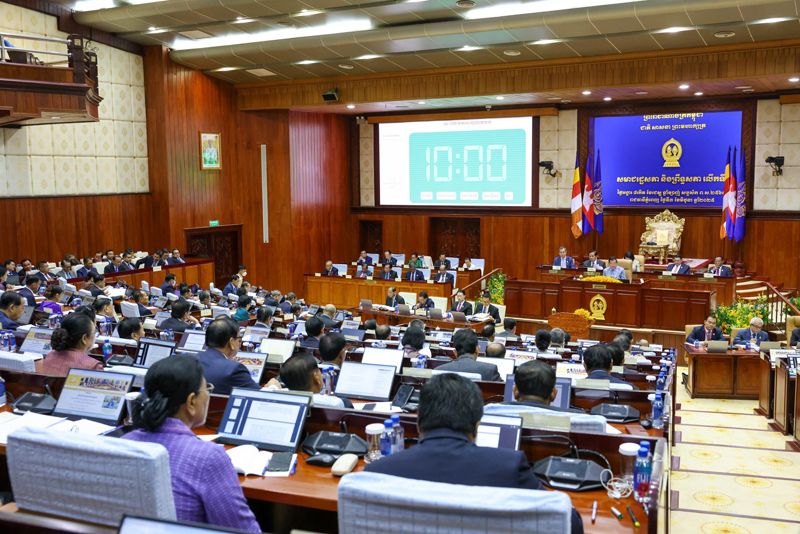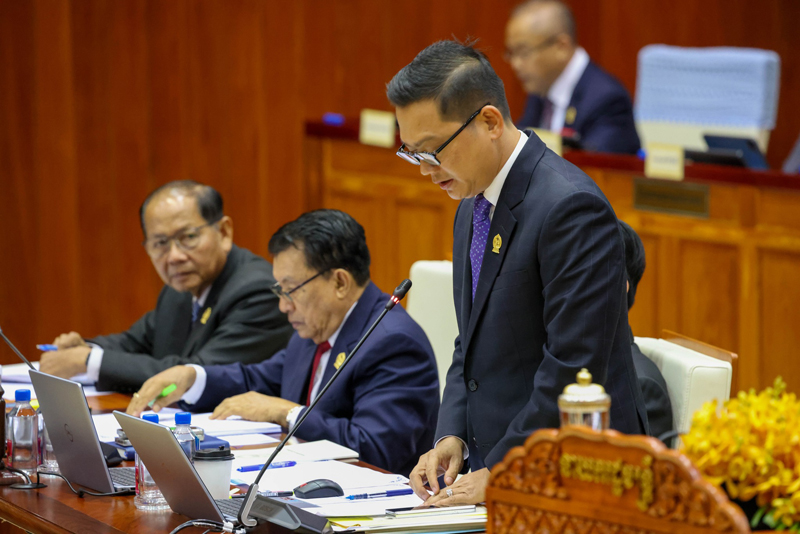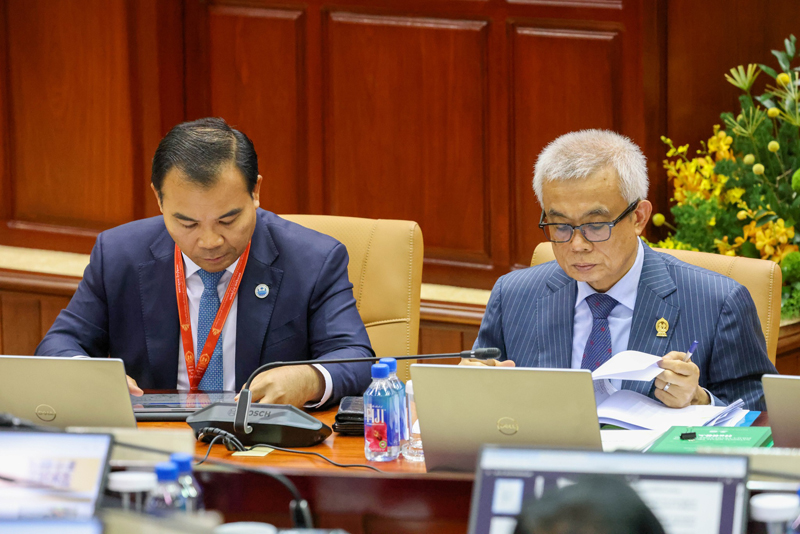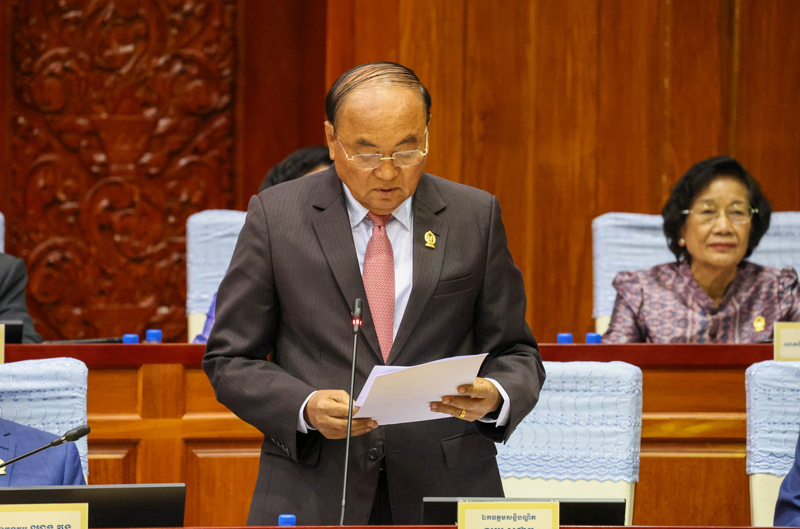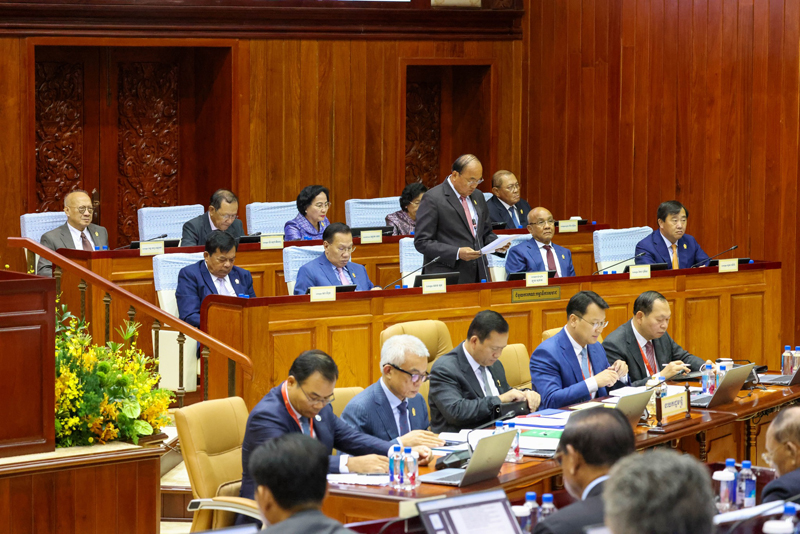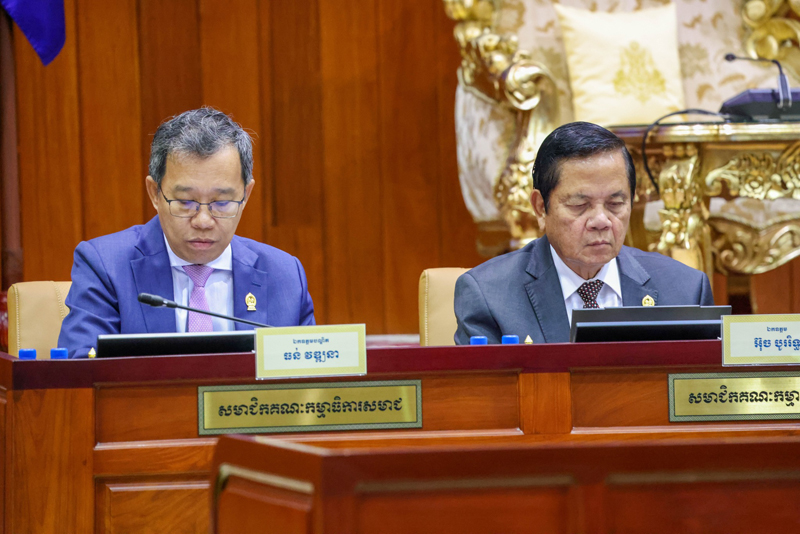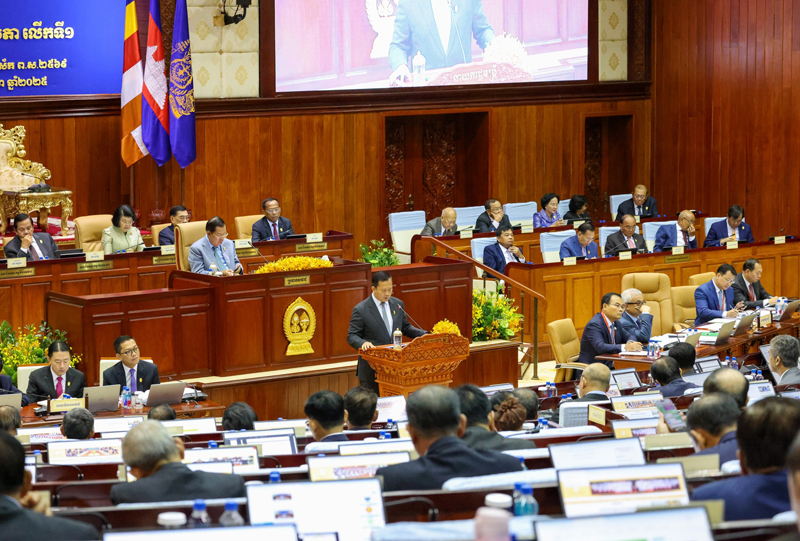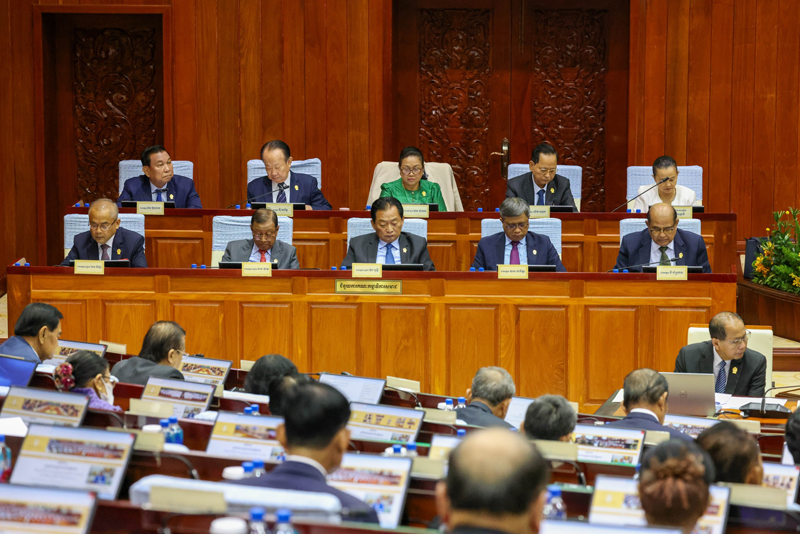Phnom Penh, 3 June 2025 — Samdech Moha Borvor Thipadei Hun Manet, Prime Minister of Cambodia, delivered an intervention on the important topic of the agriculture sector to the Congress of the National Assembly and the Senate on Tuesday morning at the National Assembly Palace.
Samdech Thipadei highlighted substantial advancements in the agricultural sector achieved through the successful execution of its Four Simplified Policy Principles: Food Security, Resource Sufficiency, Abundance, and Sustainable Growth. These principles have been instrumental in enhancing national food security, increasing productivity, encouraging value-added processing, and securing long-term environmental sustainability.
Firstly, under the Food Security Policy, the government has consistently monitored and forecasted agricultural production to ensure a reliable food supply for both producers and consumers. Under the guidance of Samdech Thipadei, a number of proactive steps have been taken to address emerging challenges in food security.
Notably, a fund of USD 40 million was allocated to domestic rice mills to stabilize rice prices and ensure affordability for the public. In addition, funds were mobilized to purchase materials, equipment, and pesticides, while technical teams were deployed to assist farmers in responding to pest outbreaks.
Secondly, under the Resource Sufficiency Policy, the government has taken proactive measures to boost the plantation timber sector in order to fulfill domestic wood needs, reduce dependence on natural forests, and expand exports. In 2024 alone, tree nurseries across the country successfully cultivated 1.4 million saplings for timber plantations and public distribution.
Meanwhile, rubber plantations, covering more than 420,000 hectares, produced approximately 410,000 tons of rubber latex, which served both domestic tire manufacturing needs and generated over USD 660 million in export revenues.
Thirdly, through the Abundance Policy, the Royal Government of Cambodia is advancing the establishment of Agro-Industrial Parks in Kampong Thom, Battambang, and Kampong Speu provinces to attract investment in agricultural processing for export. Additionally, preparations are underway to establish a cashew nut processing park in Kampong Thom province to enhance value addition, create jobs, and increase export volumes.
Fourthly, in support of the Sustainable Growth Policy, the government has continued efforts to manage and conserve agricultural land resources, addressing challenges such as soil degradation, erosion, nutrient depletion, and water quality deterioration. These efforts aim to improve soil health, productivity, and carbon storage, ensuring long-term agricultural sustainability.
In parallel, the government has promoted community engagement in the conservation of aquatic resources by releasing broodstock fish, juvenile crabs, and rare aquatic species back into natural habitats, while strengthening law enforcement to combat illegal fishing practices and forest land encroachment.
In conclusion, the progress achieved in the agriculture sector contributes directly to the realization of the Pentagonal Strategy – Phase I, positioning Cambodia to leverage the opportunities presented by the Industrial Revolution 4.0 and Digital Transformation. These initiatives lay the necessary foundation for boosting productivity, enhancing economic efficiency, and realizing the ambitious goal of elevating the nation to high-income status by 2050.
